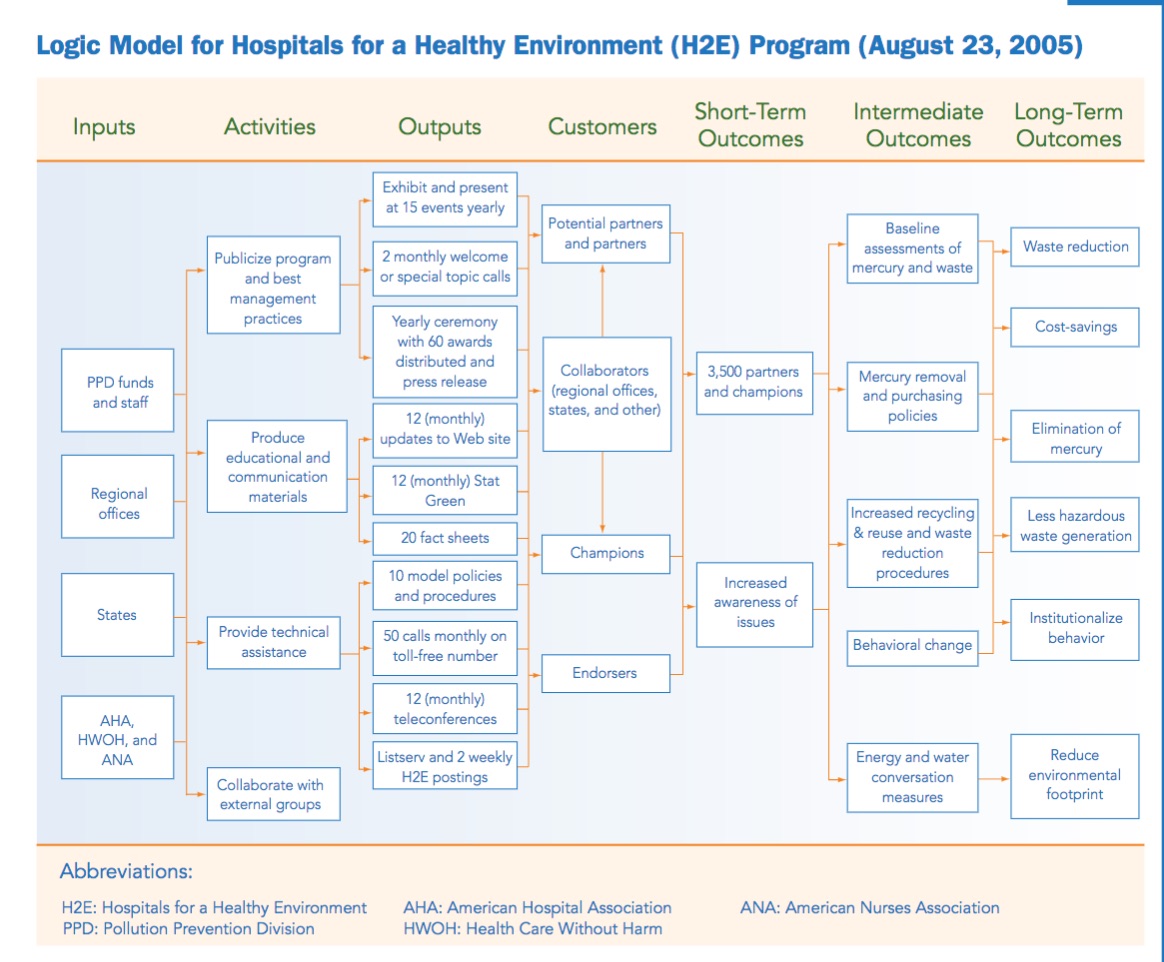Session 5
Program Evaluation Models
Boulmetis & Dutwin, Ch5; EPA/NCEI Guidelines for Evaluating an Environmental Program, Ch3-5; Rainbow Program Evaluation Framework; Kelogg Evaluation Handbook, Ch3-5; Zarinpoush, Fataneh (2006) "Program Evaluation Guide for Nonprofits: Module 4," Imagine Canada.
Topics:
- Evaluation models and their components.
- Differences between research and evaluation.
- Purposes for evaluation.
- Qualitative and Quantitative Evaluations.
- Four models of evaluation: (Discrepancy, Goal-Free, Transaction; Goal-Based).
- Evaluation model selection.
- Format for evaluation design (questions, objectives, observed activities, data sources, population sampling, data collection design, responsibilities, data analysis, and dissemination audience).
- Introduction to the Logic Model for program evaluation - elements,
- Mapping evaluation questions in a logic model - linking questions to the logic model elements.
- Foundations of a good evaluation design.
- Design selection and determining design driven data needs.
- Data collection methods and challenges.
- Selecting evaluation methodology.
- Overview of the Rainbow Evaluation Framework.
- Overview of the W.W. Kelogg Foundation framework.
- Canadian nonprofit evaluation framework.
Homework:
- Complete the questions and excercises found at the end of Chapter 5 of The ABC's of Evlauation.
- Describe a "logic model" from the perspective of EPA guidelines.
- Distinguish between these four models of evaluation: Discrepancy, Goal-Free, Transaction and Goal-Based.
- How do quantitative and qualitative evaluations differ?
- Briefly describe the Canadian non-profit evaluation framework.
- Briefly describe the W.W. Kelogg Foundation framework. How is it different from the Rainbow Framework?
- Consider the diagram below and distinguish between short, intermediate and long term outcomes.

NOTE: Submit the questions with your answers in World format as attachments to Canvas email and submit this homework - complete with APA citations and references - to the instructor by no later than 5 pm on the last day of Session 5 (as designated on the course schedule page that is linked above).
|


